What is homeopathy?
Homeopathy is a specific naturopathic treatment modality and an area of specialty at Asheville Natural Health.
Homeopathy is a system of treatment that uses minute doses of natural substances (typically plant, mineral, or animal products) to stimulate the individual’s healing force in a a subtle but profound way. Homeopathy has been used around the world safely and effectively for hundreds of years. Homeopathy is widely used in Europe, India, and South America. According to the World Health Organization more than 500 million people worldwide use homeopathy. Homeopathy is not as widely used in the United States, but its use is on the upswing as people discover its ability to heal them when other therapies haven’t.
Homeopathy is based on the Law of Similars, often summarized as “Like cures like.” Samuel Hahnemann, a medical doctor in Germany, discovered homeopathy in the late 1700s. Hahnemann questioned the accepted medical theories of his time and learned through experimentation that derivatives of certain substances seemed to produce symptoms in the body similar to those produced by certain diseases. In short, Hahnemann found that a substance that causes a certain set of symptoms in a healthy person will, in very small dose, cure a sick person with those same symptoms. For example, the plant Belladonna will cause high fever, redness of the face, and throbbing pains if given to a healthy person. Homeopathic Belladonna (an extremely diluted form of the original substance) will cure a sick person with a similar fever, redness, and pain.
Homeopathic remedies, for reasons that are not fully understood, seem to “jump start” the immune system and allow the body’s natural healing force to function properly.
What can be treated with homeopathy?
Homeopathy can address both physical and emotional symptoms. It recognizes that each person is unique and will have an individual disease pattern. For example, two patients with strep throat may manifest different symptoms. One patient has left-sided throat pain that is made worse from drinking or empty swallowing. The other patient has enlarged tonsils and pain on both sides of the throat that shoots into the eras upon swallowing. These two individuals require different remedies to elicit the healing immune response.
While homeopathy can be used to treat acute diseases (viruses, influenza, etc.), it is perhaps most profound in the treatment of chronic disease.
Why isn’t homeopathy more popular or well-known?
Homeopathy views the root of disease and its treatment in a very different way than conventional medicine. Conventional doctors are often critical of homeopathy because its basic premise differs so much from those of conventional medicine. Consider, for example:
- Conventional medicine relies largely on material doses of chemicals (pharmaceutical drugs) to impact the body. Conventional drugs change the chemistry in the body and thus produce effects, some desired and some not (side effects).
- Homeopathy uses minute doses of natural substances to elicit the body’s own healing response. The amount of the substance in a homeopathic remedy is so minute that conventional doctors claim their effects on the body are implausible. “How can this remedy have an effect when there is so little of the crude substance present in it?”
- Conventional medicine chooses substances that produce the opposite effect in the body. An insomniac is treated with a drug that makes him sleepy.
- Homeopathy treats an insomniac with a very dilute substance that causes sleeplessness – the law of similars, or :Like cures like.” So a treatment like homeopathic Coffea cruda (an extremely dilute preparation of coffee) may be used to treat the insomniac. One can imagine that this notion – treating an insomniac with a substance that can cause insomnia – might be criticized by those who don’t understand the theory and practice of homeopathy.
- Conventional medicine studies the effect of a single drug on a single symptom or disease, so aspirin might be studied for its effect on headaches.
- In Homeopathy, there is no single substance to treat a disease. Different headache sufferers are treated individually and may very well be given different remedies. Again you can see how this fundamental difference makes it difficult to compare pharmaceutical drugs to homeopathic remedies. The comparison is not apples-to-apples.
Is homeopathy studied by medical researchers?
Homeopathy is studied, but most people don’t hear about it. If an individual uses a reputable medical database, like Medline (a collection of all the medical journals in the world, maintained by the National Institutes of Health) she can find the research. For example, try looking using keywords like “homeopathy and migraines” or “homeopathy and allergies.” It’s there.
The British medical journal Lancet published a meta analysis in 2006 that was largely critical of homeopathy. The analysis was subsequently disputed in two other published articles citing that the entire review was incorrect. In fact, one of these later studies proved the exact opposite conclusion using the same data! Interestingly, Lancet published an earlier meta analysis in 1997 that was very favorable to homeopathy. In medical research, a lot depends on the intent of the authors.
My friend saw a homeopath and didn’t get better. Why does homeopathy work for some but not for others?
When homeopathy doesn’t work it usually boils down to one of two issues: obstacles to cure or practitioner ability. Homeopathy is a complicated discipline requiring years of specialized training and practice. No homeopath is successful 100% of the time, but the better-trained and more experienced the professional, the better the results. Anyone can call him- or herself a homeopath in the US, so it becomes the patient’s responsibility to research and select a qualified practitioner. Many types of health care providers practice homeopathy. You will find medical doctors, naturopathic physicians or other practitioners with training in homeopathy. You can contact the National Center for Homeopathy (homeopathic.org) for a practitioner directory.
When a homeopath refers to an “obstacle to cure” she means that there is something causing the disease that comes from outside the body. The patient may be doing or ingesting something that is getting in the way of the remedy’s action. For example:
- An anxious patient who drinks eight cups of coffee per day may not get better solely with homeopathy.
- A hyperactive child who spends hours every day playing video games and whose diet is deficient in basic nutrients will need more than a homeopathic remedy to be cured.
- An obese person with arthritis in his knees may not be cured by a homeopathic remedy alone. The extra 100 pounds of pressure on the knees is an “obstacle to cure.”
- On the other hand, a patient with allergies can be cured. For example, ragweed pollen, even though it comes from outside the body, isn’t the cause of the problem. Rather, an imbalance in the immune system causes the body to react to ragweed pollen as if it is an enemy. This type of problem can be vastly improved or cured with homeopathy.
Are homeopathic remedies safe or do they have side effects?
On eof the best things about homeopathy is that the remedies do not have negative side effects. Homeopathic remedies are prepared according to FDA standards and regulated by the FDA. The remedies are so dilute that they are non-toxic. Sometimes a homeopathic patient will experience a slight aggravation of symptoms before they get better. This is usually mild and brief, and generally indicates that the body is beginning to respond to the remedy.

